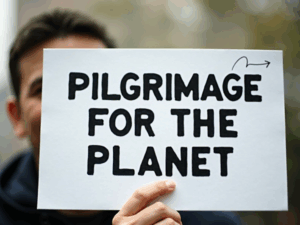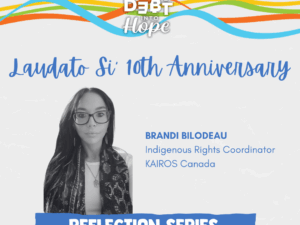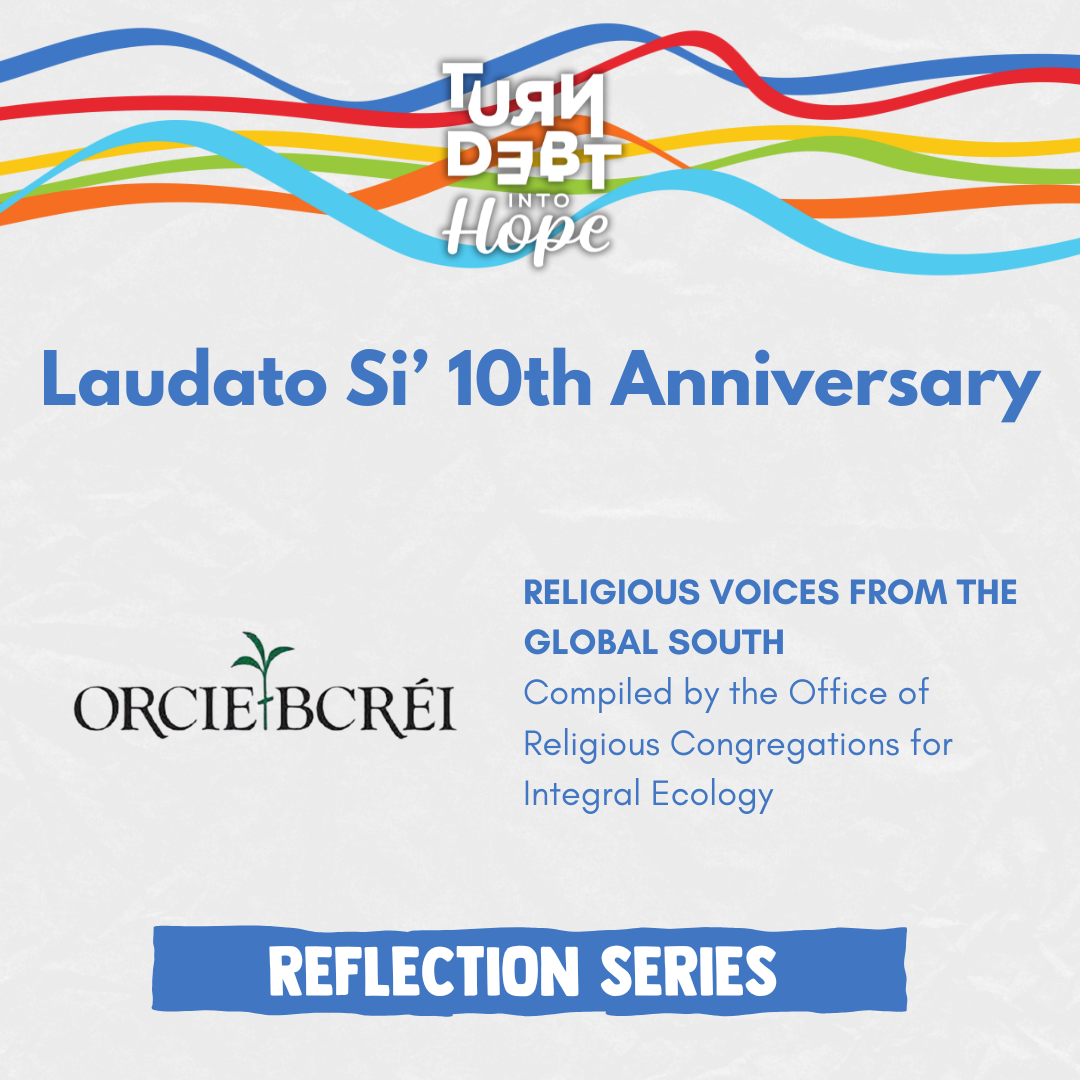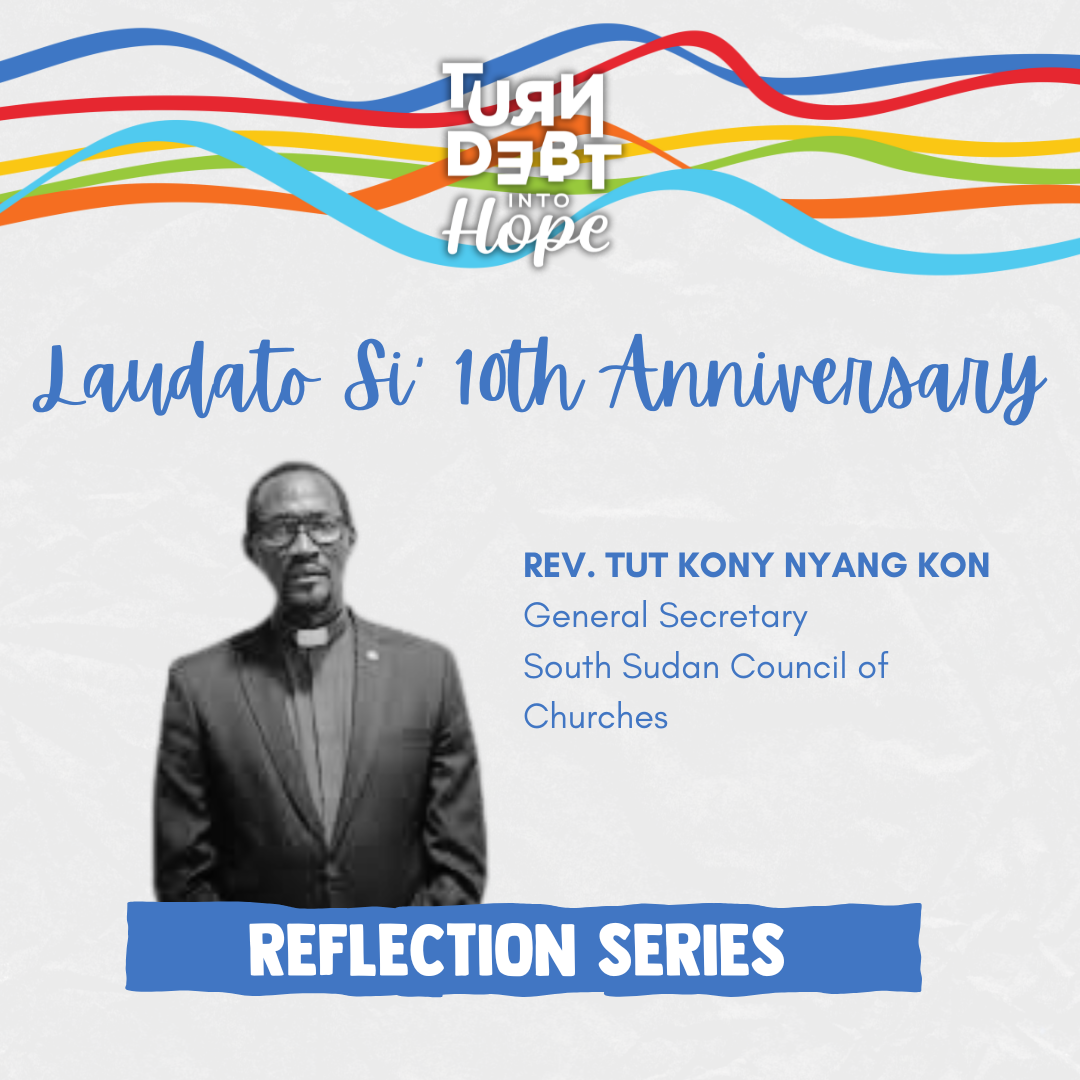Spirited Reflection: Revaluing Creation – Looking towards Earth Day

Humans put value on Creation based on what it can do for us – how can it feed us? How can we sell it to grow the economy? This attitude – our present development model – has led to the destruction of God’s Creation.
Over the last century, human actions have accumulated into unprecedented climate change, threatening our lives, especially the world’s most vulnerable.
In my work at KAIROS Canada, I continue to learn about the impacts of climate change through our partners, including the Pacific Council of Churches. The Council is based in Fiji, a small island nation in the Pacific Ocean, which is already experiencing irreversible loss and damage from sea level rise. In November, the Prime Minister of Fiji sat as the president of COP23, the annual meeting of nations to address action on climate change. Fiji’s role at that meeting brought unprecedented attention to the situation facing island states. Their witness to sea level rise is a signal to all of us of the urgency to take action on climate change.
We cannot take what is not given. Several Indigenous teachings impart this lesson. Randy Woodley, a Keetowah Cherokee, relates this lesson to harmony: when we break harmony with Creation, we break harmony with the Creator. So how do we break away from our current model of consumption and overuse and restore balance with Creation? How do we restore our relationship with the Creator?
Ecological justice calls us to live in a way where production and consumption are determined by social needs and ecological balance. Rather than seek endless growth, we are called to produce only what Creation needs to sustain it for generations to come. We are called to reconsider how we value Creation. Is it merely here for humans to use? Or does each living thing, each part of the ecosystem, have its own inherent purpose? If we remove ourselves for a moment from the equation, can we see how Creation has the right to exist on its own? If we revalue Creation in this way, could we restore that balance?
Ecological justice in times of climate change also means social justice. We are called to protect those most vulnerable: women and children, the poor, and the most fragile ecosystems. As faith communities, we are called to express love and commit to justice. As we build the resilience of our own communities here in Canada, we must also reach out across our global home and work with vulnerable communities to increase their resilience to climate impacts as well. We must find refuge for those that lose their homes and their lands.
At times, it can be challenging to see how our individual actions to reduce our own greenhouse gas emissions can have any impact. But our actions are important. They signal to our leaders that we are ready for change, that we are ready to take the steps and lead by example. And we need our leaders to take action. Climate change is part of a structural and systemic crisis that only joint political action can resolve. When we call on our leaders to take action, our own actions reflect our willingness for change.
Each action that we take in our own lives to reduce our reliance on carbon, also opens up an opportunity for us to come in closer communion with Creation and all living things.
In our daily lives, we are invited to witness the beauty of Creation, from one another and from all living things. As we enter spring, we start to see renewal and rebirth in God’s creation. Small plants begin to sprout; geese can be heard flying overhead; small robins hop along the grass; and the rivers begin to swell. We see the balance of the seasons bring forth new life. It’s easy to not realize that we too are part of that ecosystem. That balance. It’s easy to think of humans as separate from nature. Separate from the wild. But we are living parts of the ecosystem as well. Living a low-carbon life, one that recognizes the inherent value of Creation and compels us to use what is given from the Creator sustainably, will reaffirm our interconnectedness and bring us in closer relationship with God.
Beth Lorimer is the Ecological Justice Program Coordinator at KAIROS Canada. She coordinates KAIROS’ Reconciliation in the Watershed program which calls for renewed relations of ecological integrity and justice for Indigenous peoples.




